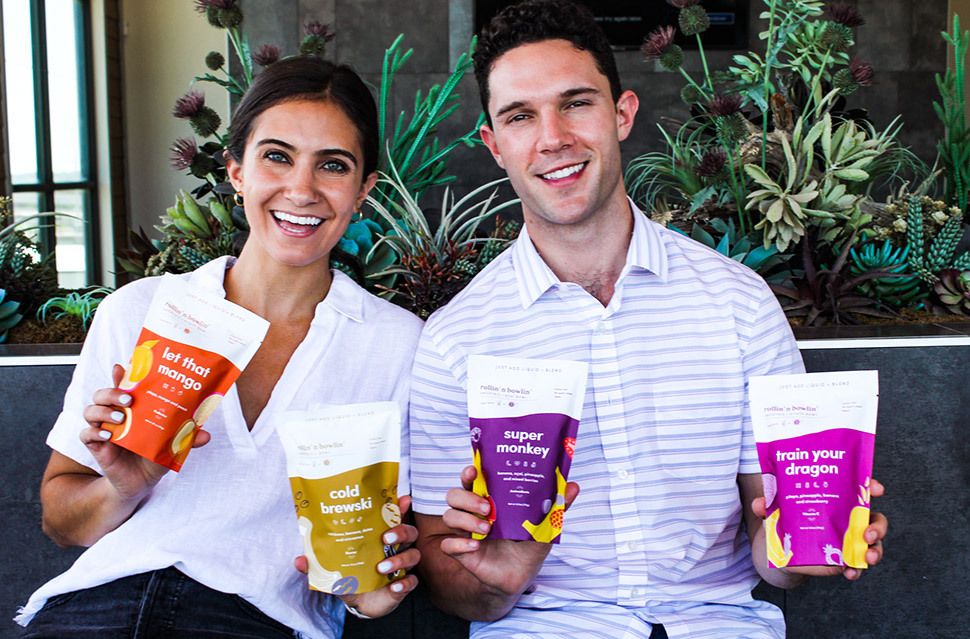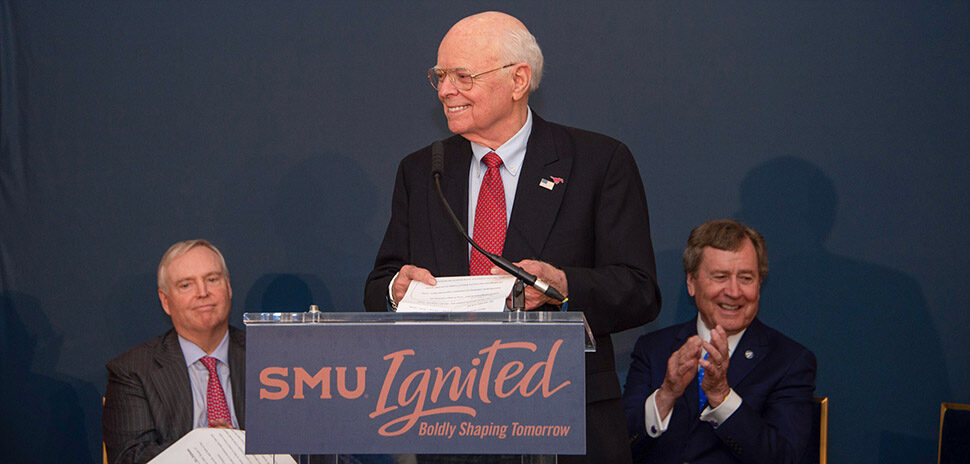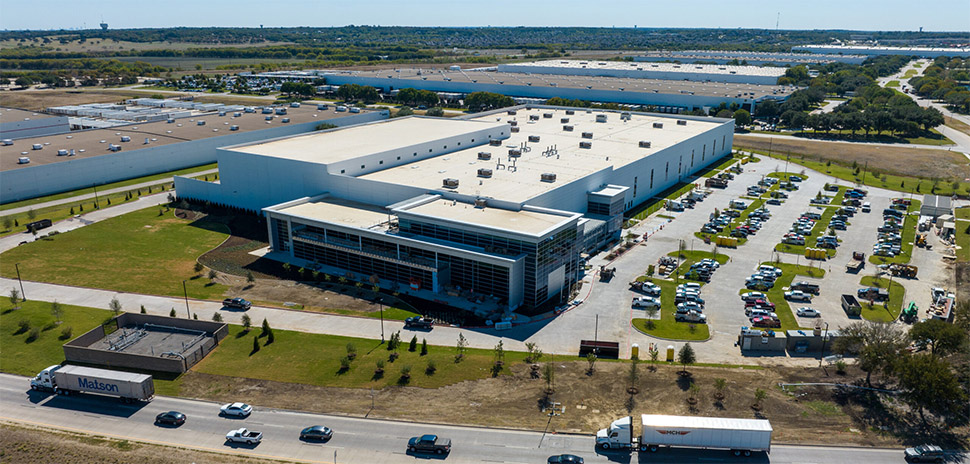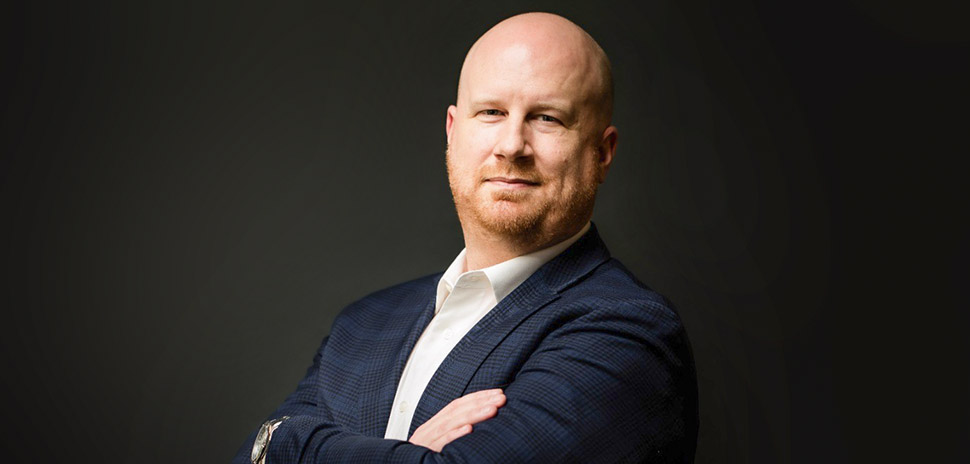The founders behind Fort Worth’s healthy food concept Rollin’ n Bowlin’ have launched a new venture looking to help “kick a sugar craving.”
Co-founder Sophia Karbowski says the new venture exemplifies her “passion for eating the way nature intended,” leading the duo to spin off and rebrand Rollin’ n Bowlin’s snacking line as realsy and launch its first product line.
“Realsy is a shelf-stable snacking brand with a mission to make delicious, nutritious and simple snacks with real ingredients only,” co-founder Austin Patry wrote in a LinkedIn post.
Disrupting the ‘better-for-you snacking industry’

Rollin’ n Bowlin Co-Founders Sophia Karbowski and Austin Patry. [Photo: Rollin’ n’ Bowlin’]
Patry said the idea behind realsy started about a year ago with Karbowski looking into a nutrient-dense snack. Now that idea is the company’s first product—a line of pitted Medjool dates stuffed with different types of nut butter.
Three ingredients or fewer
Currently the lineup consists of almond butter dates, peanut butter dates, and cacao peanut butter dates. Karbowski said each snack pack is made with three ingredients or fewer, adding that she wants realsy’s products to be made with ingredients customers are able to recognize.
Karbowski wrote in a LinkedIn post that realsy is a “small but soon-to-be mighty platform to educate consumers on how twisted our food industry has become.” While remaining scant on details, Patry wrote that the launch of the brand is the “start of something big.” He added that the branding of Rollin’ n Bowlin’ didn’t “strongly convey the purpose” of the realsy product line in a market “where you have half a second to catch a consumer’s attention on the shelf,” which led to the decision to set up the company on its own.
“We’re so excited to disrupt the better-for-you snacking industry with an actually good-for-you snack,” Karbowski wrote.
Co-founders previously launched Rollin’ n Bowlin’
Patry and Karbowski first became business partners in 2017 while studying entrepreneurship at Texas Christian University. Wanting a healthier eating option on campus, the two launched Rollin’ n Bowlin’ as a food truck, serving up smoothies and açaí bowls. The brand has since traded in its wheels for walls and focuses on opening brick-and-mortar locations on college campuses. It has also since expanded its menu to include a lineup of toasts.
The company’s first storefront was at TCU. It now has locations at other campuses like Southern Methodist University, the University of Notre Dame, Tulane University, and the University of Denver. It’s managed that growth without taking on angel or venture capital funding. According to AccelerateDFW, the company was launched with the help of Bitcoin investments from Patry and an $8,000 Indiegogo campaign Karbowski set up. Due to lockdowns early on in the pandemic, Rollin’ n Bowlin’ now also sells directly to consumers and through grocery stores like Sprouts Farmers Market.
Giving back to student entrepreneurs
With a mission to “spread healthy vibes,” Rollin’ n Bowlin’ also looks to spread entrepreneurship. Last year, the company launched its Bowls n Goals incubator program for student startup founders. Through the semester-long program, students from across industries get training, networking, and $1,000 to help fuel “their passions.” The program mainly focuses on business growth, with participants connecting with Rollin’ n Bowlin’s operations, marketing, and ownership teams via monthly calls, joining strategy sessions, and exploring additional entrepreneurship support and resources.
“Starting a business during college can be an immense challenge if you don’t have the necessary resources and support, but I also think it’s the best time in your life to start a company,” Patry previously said about the program. “We’ve developed Bowls n Goals to assist in propelling the dreams of other students that were just like us—this is our way of paying it forward.”
![]()
Get on the list.
Dallas Innovates, every day.
Sign up to keep your eye on what’s new and next in Dallas-Fort Worth, every day.







































































